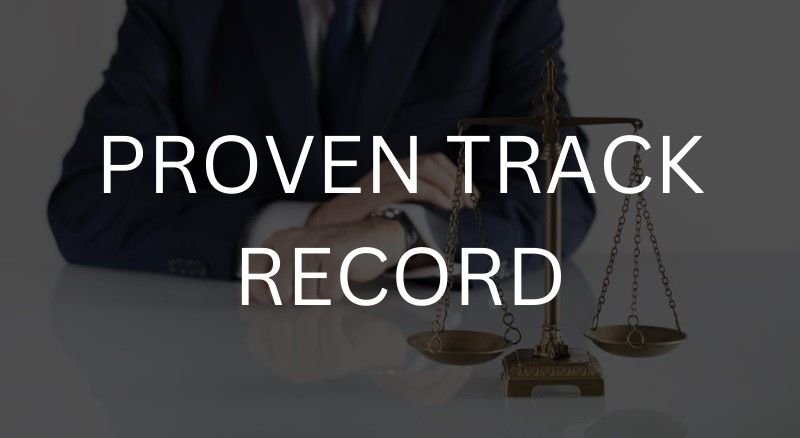Downey & Associates, PC has a successful appellate practice. We have briefed and argued cases before the Colorado
Court of Appeals, The Colorado Supreme Court, the United States Court of Appeals for the Tenth Circuit and other state appellate courts. Our law offices are in Englewood and we accept cases throughout Colorado, including Denver and Boulder.
Proven Track Record
We are proud of our appellate track record. Firm leader, Thomas E. Downey Jr. has appeared in federal appellate courts and state appellate courts in Colorado, Arizona and Ohio. Some of our appeals have made a significant contribution to the development of the law in Colorado in the areas of insurance coverage, governmental immunity, property tax, and personal injury negligence.
In one such case, the Colorado Supreme Court decision, Scott vs. Matlack, the court clarified the use of OSHA standards and regulations as evidence of the standard of care in negligence cases.
Related: RX Green Countersues Over False Claims, Alleged Violations of the Colorado Consumer Protection Act
Reputation for Integrity and Success
We critically examine the issues to be appealed, conduct thorough research, use our excellent writing skills to draft convincing appellate briefs, and make forceful oral arguments.
We are proud of our aggressive and ethical client representation. Tom Downey serves on several bar associations and other committees devoted to the ethical practice of law.
Contact Us
To speak with an experienced lawyer about a possible appeal, call us at (303) 813-1111 or email us through our contact page. Downey & Associates PC are available for free initial consultations for those who qualify. We make evening appointments and can accept credit cards.
Frequently Asked Questions
How does Downey & Associates, PC approach case evaluation for appeals?
Our firm conducts a thorough case evaluation, examining the trial court's proceedings, identifying potential grounds for appeal, and providing clients with a realistic assessment of the appeal's prospects. This careful preparation is crucial for achieving success in appellate courts in Denver and beyond.
What are common grounds for appeal in Colorado?
Common grounds for appeal include legal errors, such as incorrect jury instructions, improper admission of evidence, or misapplication of the law. Downey & Associates, PC's expertise in Denver appellate law ensures that all viable grounds are explored to strengthen your case on appeal.
What standards of review apply on appeal and why do they matter?
Appellate courts review issues under standards like de novo for pure law, abuse of discretion for many trial rulings, and clear error for certain fact findings. The standard of review sets the level of deference the appellate court gives the trial court. Choosing and arguing the correct standard can be outcome-determinative. Colorado appellate briefs must identify and support the standard used for each issue. Framing issues to fit a more favorable standard is a core appellate strategy. The Colorado Judicial Branch’s guidance on opening briefs explains how to present standards of review.
Can I appeal an order before the final judgment in Colorado?
Sometimes, but only in limited circumstances. Colorado allows discretionary interlocutory appeals when the trial court certifies an order and the Court of Appeals accepts review. This route is reserved for important controlling questions that may materially advance the case. The process and criteria are set by Colorado Appellate Rule 4.2. Interlocutory review requires careful timing and targeted petitions. You can read the rule in the official rule change document.
What are the key filing deadlines and steps to start a Colorado appeal?
Appeals start by filing a Notice of Appeal and designating transcripts within a short deadline after entry of judgment. In 2025, the Colorado Supreme Court amended the rules to require the Notice of Appeal within 21 days in many civil cases, with some exceptions. Post-trial motions under C.R.C.P. 59 can affect timing, so coordination is essential. Early tasks include ordering transcripts, securing the record, and calendaring all briefing deadlines. Missing a deadline can forfeit the appeal. See the 2025 rule change for the current timing requirements.
Why is timely action important in filing an appeal?
Filing an appeal involves strict deadlines, and missing these can forfeit your right to appeal. At Downey & Associates, PC, we prioritize prompt action to ensure all necessary documents are filed on time, protecting your interests and maximizing your chances of a successful appeal. For more details, please contact us for a consultation.
Additional Information in Denver, CO
- Understanding the Appellate Process in Colorado: Provides an overview of the appellate process in Colorado, detailing the steps involved, from filing an appeal to final judgment. It covers key aspects such as timelines, documentation requirements, and the roles of different participants in the process.
- Understanding Appeals: ABA provides an overview of the appeals process, explaining how appellate courts review lower court decisions. It covers key aspects such as the grounds for appeal, the role of appellate judges, and the significance of written briefs and oral arguments in the appellate procedure.
- Daily Appellate Opinions - Tenth Circuit Court of Appeals: The Tenth Circuit Court of Appeals provides daily updates on the latest appellate opinions issued by the court. This resource allows legal professionals and the public to access and review recent decisions, ensuring transparency and accessibility to court rulings.


